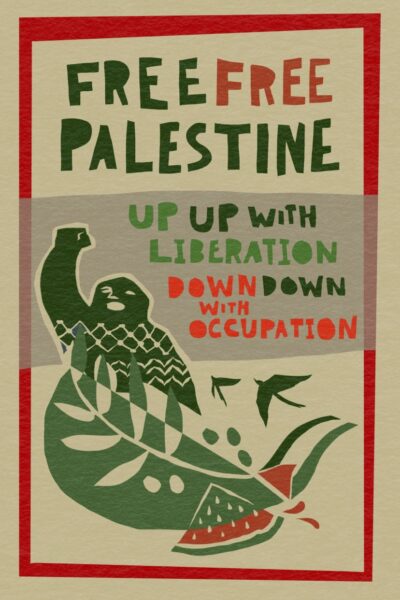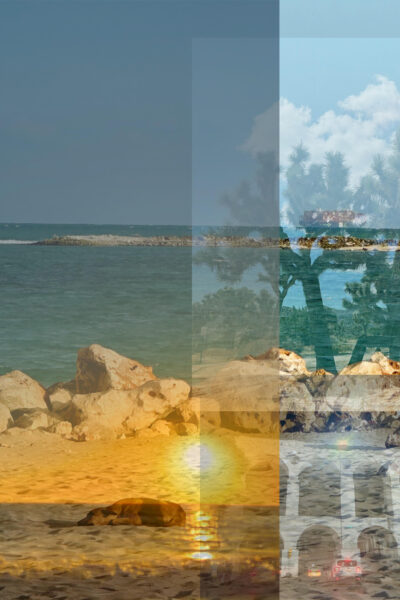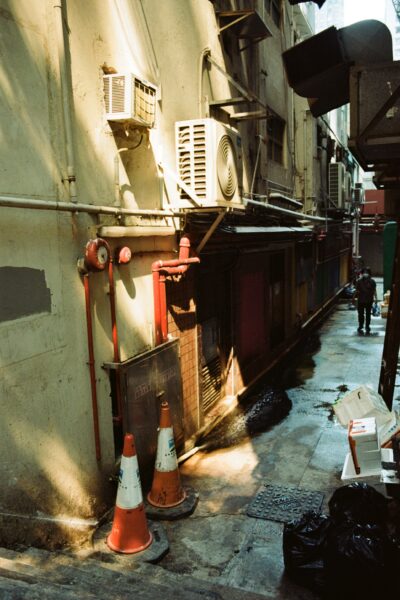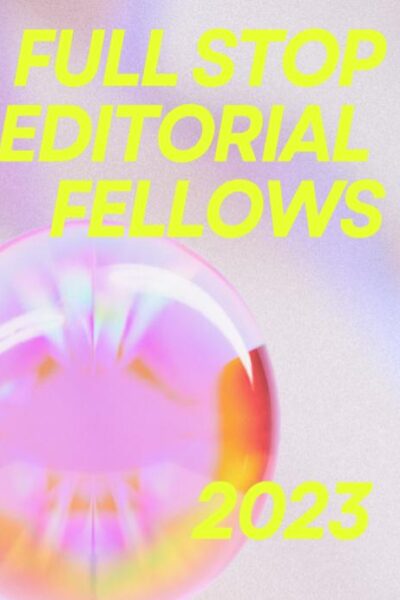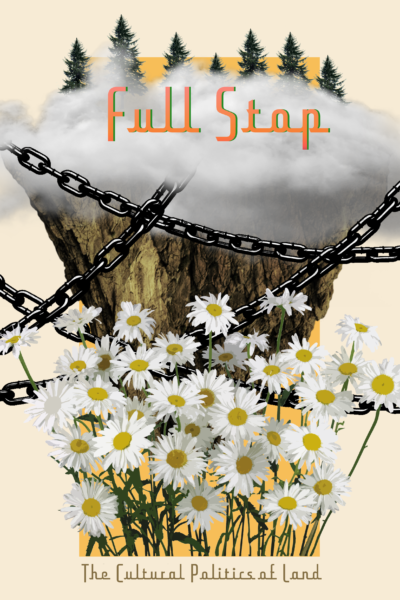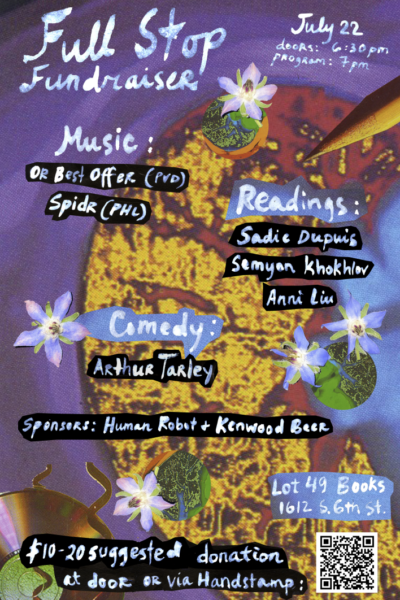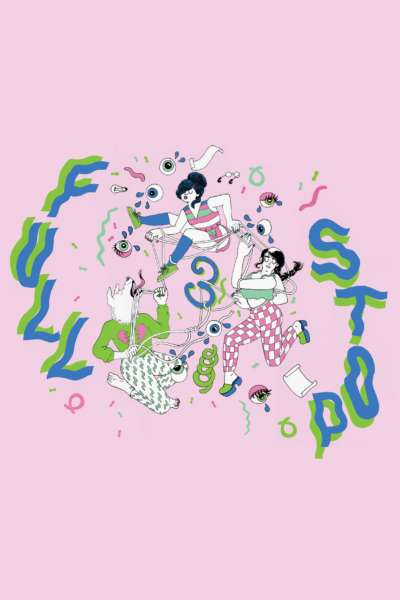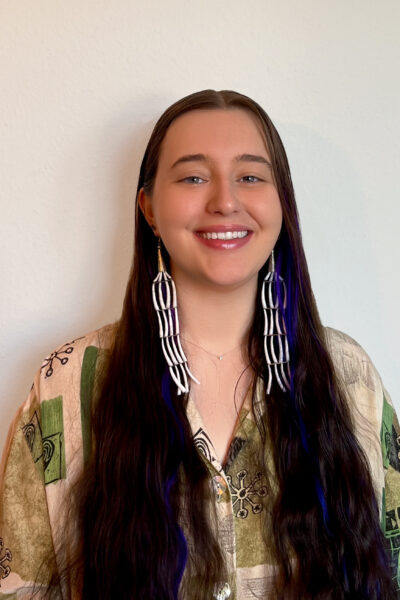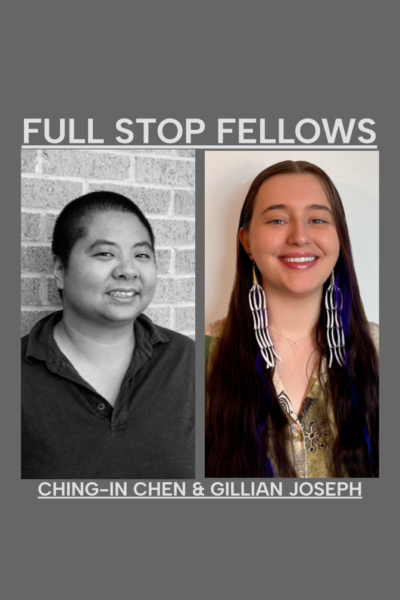Full Stop stands proudly in solidarity with the people of occupied Palestine in committing to the Palestinian Campaign for the Academic and Cultural Boycott of Israel (PACBI) guidelines.
[This issue aims] to explore how the intersection of language, queerness, and shifting dynamics of racialization and belonging can help generate language to define oneself and to approach literary and arts criticism without centering Global North, white, male, cis-hetero standpoints.
What are the commonalities or differences of writing urban dis(-)appearance across continents, or in the same city across disparate works of literature?
How does literature counter brutality? Does an ideal utopian city exist across the trenches of global writing?
Introducing the Full Stop Editorial Fellows
We’re excited to introduce our 2023 Full Stop Fellows: Michelle Chan Schmidt and Natália Affonso!
Call for Applications: 2023 Full Stop Editorial Fellows
Full Stop invites applications for two Full Stop Editorial Fellows. These three-month-long fellowships will invite early-career writers or editors to independently envision, commission, and edit an issue of the Full Stop Quarterly.
Full Stop Quarterly: Fall 2023
Communities in . . . different parts of the world face connected forms of political repression, which are themselves buttressed by racial and religious chauvinism, the political apparatus of the nation-state, and neoliberal free trade agreements. . . . In these land-based struggles, cultural production has functioned as a unique political tool.
Full Stop Fundraiser at Lot 49 Books
With readings by Semyon Khokhlov, Sadie Dupuis, and Anni Liu, and comedian Arthur Tarley, & musical performances by Philadelphia-based musician Spidr and Or Best Offer from Providence, RI.
Full Stop’s 2023 Whiting Matching Grant
To meet our full match and make the most of this opportunity, we need your help in raising $1,500 by the end of the year.
Reclaiming Horror, a special issue of Full Stop Quarterly, guest-edited by Gillian Joseph
Announcing the Full Stop Editorial Fellows
We’re excited to announce the 2022 Full Stop Editorial Fellows: Ching-In Chen and Gillian Joseph!



